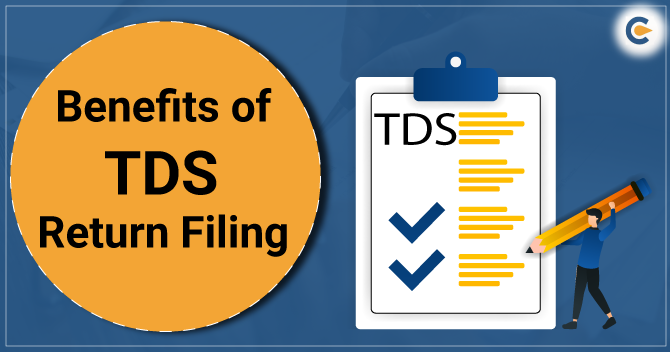The Income Tax Appellate Tribunal (ITAT) recently made a significant ruling that brings clarity to the taxation of gifts between spouses. In this ruling, the Income Tax Appellate Tribunal stated that a husband is entitled to claim a tax deduction at source (TDS) credit on the interest earned from the amount gifted to his wife. This decision has far-reaching implications for married couples and provides important insights into the tax treatment of inter-spousal financial transactions.
Gifting money between spouses is a common practice, often driven by various financial and personal considerations. However, the taxation of such gifts has been a subject of confusion and ambiguity in the past. The recent ITAT ruling addresses these concerns and offers valuable guidance to taxpayers and tax professionals alike.
The case that led to this ruling involved a husband who had gifted a substantial sum of money to his wife. Subsequently, the wife invested the gifted amount and earned interest on it. The husband sought to claim TDS credit on the interest earned, but the tax department disallowed it, arguing that the husband was not the legal owner of the funds. This disagreement escalated to the ITAT, which ultimately resolved the matter.
In this blog post, we will explore the details of the ITAT ruling and its implications for married couples. We will examine the rationale behind the decision, the taxability of gifts between spouses, and the potential impact on financial planning. Understanding this ruling is crucial for individuals who wish to navigate the tax landscape effectively and ensure compliance with the law. Let’s delve deeper into the case and its implications in the following sections.
The Case in Context
The ITAT ruling on the entitlement of TDS credit to a husband for the interest earned from a gift to his wife stemmed from a specific case that came before the tribunal. To understand the implications of the ruling, it is essential to delve into the details of the case that prompted this decision.
In the case brought before the Income Tax Appellate Tribunal, a husband had gifted a considerable sum of money to his wife. After receiving the gift, the wife invested the amount and earned interest on it. When the husband claimed TDS credit on the interest earned, the tax department rejected his claim, arguing that he was not the legal owner of the funds anymore.
This dispute led to the case being taken to the ITAT, where the tribunal was tasked with determining whether the husband had the right to claim TDS credit on the interest earned from the gifted amount. Examining the specific circumstances of this case allowed the ITAT to provide a ruling that clarifies the tax treatment of gifts between spouses. The ITAT’s decision goes beyond this individual case and sets a precedent for similar situations involving inter-spousal financial transactions. In the subsequent sections, we will explore the rationale behind the ITAT ruling and its implications for married couples and tax compliance.
ITAT’s Rationale
The ITAT’s ruling on the entitlement of TDS credit to a husband for the interest earned from a gift to his wife was based on a thorough examination of the relevant provisions of the Income Tax Act and an analysis of the nature of the transaction between the husband and wife.
The tribunal highlighted the concept of deemed ownership, which plays a crucial role in determining the taxability of income. While the husband may not be the legal owner of the gifted amount after transferring it to his wife, the ITAT recognized that he remains the deemed owner for income tax purposes. By emphasizing the concept of deemed ownership, the ITAT established that the husband, as the deemed owner, retains the right to claim TDS credit on the interest earned from the gifted amount. The ITAT reasoned that the income generated from the gifted amount should be taxed in the hands of the person who provided the funds, regardless of the legal ownership of the assets.
This rationale ensures that income is attributed to the individual who earned it and aligns with the fundamental principle of taxation. By recognizing the deemed ownership of the husband, the ITAT upheld the taxpayer’s right to claim TDS credit on the interest income derived from the gifted amount. The ITAT’s ruling sets a precedent for future cases involving gifts between spouses and provides clarity on the tax treatment of such transactions. It offers a clear understanding of the importance of deemed ownership in determining the tax liability and entitlement to TDS credit. In the following sections, we will explore the taxability of gifts between spouses and the wider implications of the ITAT’s ruling for married couples.
Taxability of Gifts between Spouses
The ITAT’s ruling on the entitlement of TDS credit to a husband for the interest earned from a gift to his wife sheds light on the taxability of gifts between spouses.
According to the Income Tax Appellate Tribunal, when a husband gifts a sum of money to his wife, it does not result in a transfer of income but rather a transfer of assets. In other words, the income generated from the gifted amount is still considered the income of the husband, regardless of the legal ownership of the assets. This interpretation aligns with the principle that income should be taxed in the hands of the person who earns it. Despite the transfer of assets to the wife, the ITAT ruled that the husband, as the deemed owner, retains the right to claim TDS credit on the interest earned from the gifted amount.
The ITAT’s decision clarifies the tax treatment of gifts between spouses and provides a more comprehensive understanding of the underlying principles. It establishes that the income derived from the gifted amount should be attributed to the individual who provided the funds, rather than the legal owner of the assets.
It is important to note that the taxability of gifts between spouses may vary depending on the jurisdiction and applicable tax laws. However, the ITAT’s ruling serves as a significant reference point in understanding the tax implications of inter-spousal financial transactions. In the subsequent sections, we will explore the broader implications of the ITAT’s ruling for married couples and its potential impact on financial planning.
Implications for Married Couples
The ITAT’s ruling on the entitlement of TDS credit to a husband for the interest earned from a gift to his wife has several implications for married couples. Let’s explore how this ruling affects them:
- Simplified Tax Filing Process: The ITAT’s decision brings clarity to the tax filing process for married couples. It establishes that the husband, as the deemed owner, can claim TDS credit on the interest income derived from the amount gifted to his wife. This clarity simplifies the tax filing procedure by providing a clear framework for reporting and claiming deductions related to such inter-spousal financial transactions.
- Reduced Tax Disputes: Ambiguity surrounding the taxability of gifts between spouses has been a source of potential disputes with tax authorities. However, the ITAT’s ruling mitigates this risk by providing a definitive stance on the entitlement of TDS credit to the husband. Couples can now rely on this ruling to support their tax positions, minimizing the chances of disputes and potential litigation.
- Financial Planning Considerations: The ITAT’s ruling may influence the financial planning decisions of married couples. With the recognition of the husband’s entitlement to TDS credit, couples can strategically allocate their funds and consider tax implications when making financial decisions. They may opt for asset transfers and investments that optimize tax benefits while ensuring compliance with the law.
- Professional Tax Advice: Given the complexity of tax laws and the implications of this ruling, it is advisable for married couples to seek professional tax advice. Tax professionals can provide guidance on optimizing tax planning strategies, ensuring compliance, and leveraging the benefits of the ITAT’s ruling. They can also help couples navigate the intricacies of reporting and claiming TDS credit on interest income derived from gifted amounts.
Understanding the implications of the ITAT’s ruling is crucial for married couples to make informed financial decisions and fulfill their tax obligations accurately. By staying informed and seeking professional guidance, couples can effectively leverage the benefits of this ruling while ensuring compliance with the tax laws pertaining to gifts between spouses.
Legal Basis for the ITAT Ruling
The ITAT’s ruling on the entitlement of TDS credit to a husband for the interest earned from a gift to his wife is based on several provisions of the Income Tax Act. Understanding the legal basis for this ruling is essential to comprehend the validity and implications of the decision. Here are some key legal provisions that form the foundation of the ITAT’s ruling:
- Section 64(1)(iv): This section of the Income Tax Act deems the income derived from assets transferred to a spouse as the income of the transferor. The Income Tax Appellate Tribunal relied on this provision to establish that even though the legal ownership of the gifted amount lies with the wife, the husband remains the deemed owner for tax purposes. This deemed ownership allows the husband to claim TDS credit on the interest earned from the gifted amount.
- Interpretation of Gift and Income Tax Laws: The Income Tax Appellate Tribunal’s ruling also aligns with the interpretation of gift and income tax laws. While the transfer of assets between spouses may not result in a transfer of income, any income generated from the gifted assets should be attributed to the individual who provided the funds. This interpretation ensures that income is taxed in the hands of the person who earned it, regardless of the legal ownership of the assets.
The legal basis for the ITAT’s ruling strengthens the validity and applicability of the decision. By relying on relevant provisions of the Income Tax Act[1] and interpreting the gift and income tax laws, the ITAT has provided a solid framework for understanding the entitlement of TDS credit to a husband for the interest earned from a gift to his wife.
Understanding the legal basis for this ruling helps individuals and tax professionals navigate the tax landscape effectively, ensure compliance with the law, and leverage the benefits of the ITAT’s decision.
Avoidance of Tax Disputes
The ITAT’s ruling on the entitlement of TDS credit to a husband for the interest earned from a gift to his wife has significant implications in terms of avoiding tax disputes. Here’s how this ruling helps in minimizing potential conflicts with tax authorities:
- Clarity and Consistency: The ITAT’s decision brings clarity and consistency to the tax treatment of gifts between spouses. It provides a clear interpretation of deemed ownership and establishes the entitlement of the husband to claim TDS credit on the interest income. This clarity reduces the chances of misunderstandings and differing interpretations, thereby promoting consistency in tax assessments.
- Supported Tax Positions: The ruling provides a legal basis for taxpayers, specifically husbands, to support their tax positions when claiming TDS credit on interest earned from gifted amounts. By referring to the ITAT’s decision, taxpayers can demonstrate the validity of their claims and ensure alignment with the established legal interpretation.
- Precedent for Future Cases: The ITAT’s ruling sets a precedent for future cases involving similar inter-spousal financial transactions. Taxpayers can rely on this precedent to support their positions and minimize the risk of disputes with tax authorities. Consistency in tax treatment reduces the likelihood of arbitrary assessments and encourages a more predictable tax environment.
- Smoother Tax Compliance: With clear guidelines provided by the ITAT’s ruling, married couples can comply with tax obligations more smoothly. They can accurately report the interest income derived from gifted amounts and claim TDS credit in accordance with the established interpretation. Smooth tax compliance reduces the burden of audits, inquiries, and potential penalties associated with disputed tax positions.
By reducing ambiguity and providing a consistent framework, the ITAT’s ruling helps taxpayers and tax authorities avoid tax disputes related to the TDS credit entitlement on interest income from gifts between spouses. It promotes transparency, fairness, and compliance in the tax system, fostering a more efficient and effective tax administration.
Conclusion
The recent ruling by the Income Tax Appellate Tribunal (ITAT) that grants a husband the entitlement to claim TDS credit on the interest earned from a gift to his wife carries significant implications for married couples and tax compliance. The ITAT’s decision provides much-needed clarity on the tax treatment of gifts between spouses. By recognizing the concept of deemed ownership, the ruling establishes that the income generated from the gifted amount should be attributed to the person who provided the funds, regardless of the legal ownership of the assets. This interpretation aligns with the fundamental principle of taxation, ensuring that income is taxed in the hands of the individual who earned it. The ruling not only simplifies the tax filing process for married couples but also reduces the likelihood of tax disputes. By clarifying the entitlement of a husband to claim TDS credit on the interest income, couples can rely on this ruling to support their tax positions and minimize conflicts with tax authorities. This clarity promotes consistency and transparency in tax assessments, fostering a more efficient and fair tax system.
Read our Article: What Is Tax Deducted At Source & TDS Certificate?











